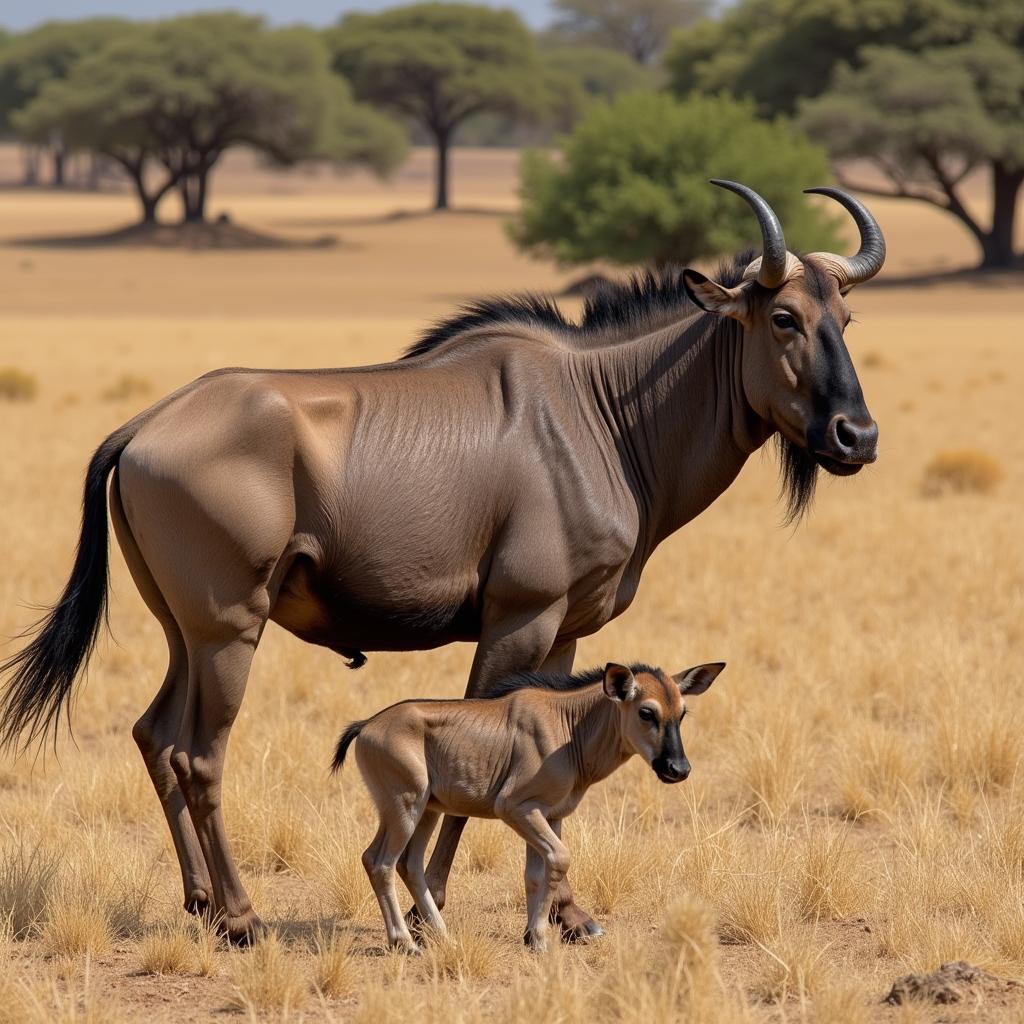The African Hippo: A Behemoth with a Gentle Soul
The African Hippo, with its massive size and unmistakable features, is an iconic resident of sub-Saharan Africa. Often seen basking in rivers or grazing on the surrounding plains, these gentle giants are a true testament to the incredible diversity and power of the African wildlife.
A River Giant: Habitat and Physical Characteristics
African hippos, also known as common hippos, are semi-aquatic mammals that thrive in a variety of freshwater habitats, including rivers, lakes, and swamps. Their wide distribution across sub-Saharan Africa reflects their adaptability and ecological importance.
These behemoths are the third-largest land mammals on Earth, with males reaching up to 1,500 kilograms in weight. Their barrel-shaped bodies are supported by short, sturdy legs, and their thick, hairless skin provides protection from the sun and predators. Their most striking feature, however, is their enormous mouths, which can open to an impressive 180 degrees.
A Vegetarian Lifestyle: Diet and Grazing Habits
Despite their intimidating size and powerful jaws, African hippos are primarily herbivores. Their diet consists mainly of grasses, reeds, and other vegetation found along the riverbanks. They typically graze at night, venturing onto land under the cover of darkness to avoid the scorching African sun.
Their grazing habits play a crucial role in maintaining the health of their ecosystem. By consuming large amounts of vegetation, they prevent overgrowth and help to create clear pathways for other animals to access water sources. Their dung also serves as a vital source of nutrients for fish and other aquatic life.
Social Structure: Living in Pods and Communicating with Grunts
African hippos are highly social animals that live in groups called pods, which can range in size from a few individuals to over 100. These pods are typically led by a dominant male, who fiercely defends his territory and the females within it.
Communication within the pod is essential for maintaining order and avoiding conflict. Hippos use a variety of vocalizations, including grunts, snorts, and bellows, to express themselves. Their most impressive vocalization, however, is their territorial roar, a deep, booming sound that can travel for miles.
Threats and Conservation: Balancing Human Needs and Wildlife Protection
Despite their size and strength, African hippos face a number of threats, primarily due to human activities. Habitat loss and degradation, resulting from deforestation, agriculture, and human settlement, are pushing hippos into smaller and more fragmented areas.
Poaching also poses a significant threat, with hippos targeted for their meat, ivory, and hides. Climate change is also a growing concern, as rising temperatures and unpredictable rainfall patterns are altering their habitats and making it harder for them to find food and water.
Conservation efforts are underway to protect these magnificent creatures and ensure their long-term survival. These efforts include establishing protected areas, regulating hunting and trade, and raising awareness about the importance of hippo conservation.
African Hippos: A Vital Part of the African Ecosystem
The African hippo is more than just a large, fascinating animal. It is a keystone species, playing a vital role in maintaining the health and balance of its ecosystem. Its presence has a ripple effect on countless other species, from the fish that rely on its dung to the predators that hunt it.
As we continue to learn more about these incredible creatures, it is our responsibility to ensure that they have a future in the wild. By supporting conservation efforts and reducing our impact on their habitats, we can help to ensure that the African hippo continues to thrive for generations to come.
FAQs
1. How long do African hippos live?
African hippos have an average lifespan of 40-50 years in the wild.
2. What are the main predators of African hippos?
Adult African hippos have few natural predators due to their size and strength. However, young hippos are vulnerable to attacks from crocodiles, lions, and hyenas.
3. Are African hippos aggressive?
While generally peaceful, African hippos can be extremely aggressive if they feel threatened, especially when protecting their young or territory.
Related Content
For more information on the fascinating wildlife of Africa, check out these articles:
If you need further assistance or have any questions, please contact us at:
Phone Number: +255768904061
Email: kaka.mag@gmail.com
Address: Mbarali DC Mawindi, Kangaga, Tanzania
Our customer care team is available 24/7 to assist you.



